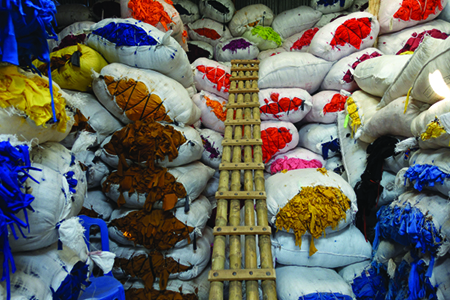

fashion waste
As the country’s major part of the economy is dependent on the garment industry, it sees its way to effect change with circularity.
Global fashion Agenda, together with partners this Reverse Resources, and more than 30 other brands, manufacturers, and recyclers have joined hands under ‘Circular Fashion Partnership’ in Bangladesh, this Wednesday. Through this partnership, they aim to find solutions for post-production fashion waste & pandemic sized proportions of fabric deadstock and efficient scale-up for fiber recycling. Brands like Bershka, C&A, Bestseller, H&M Group, Grey State, Marks & Spencer along with the manufacturers like Renewecell, Worn Again Technologies, Lenzing and many more have invested in this project.
Miran Ali, BGMEA director, favored encouraging the circular economy and also emphasized the growing demand for circular apparel. Bangladesh’s one advantage in this project is that it typically produces larger volumes of the same item so the waste is more standardized there. Apart from this Bangladesh still has a dismal picture where more than 200 apparel factories closed amid pandemic and lots of workers lost their jobs.
Rubana Huq, president of BGMEA, voiced concern last month over the outright collapse of the industry without official financial resources.
Ambercycle and Highsun Holding Group have signed a strategic cooperation agreement aimed at advancing textile-to-textile (T2T) closed-loop recycling systems.
PAIGE has partnered with the Cotton Lives On programme to launch a recycling campaign, encouraging customers to bring in old…
Toray Industries Inc. from Japan, has partnered with Head Sports GmbH to create the Boom Raw tennis racquet, a product…
Icon Denim LA is expanding its collection made entirely from organic cotton. The brand first introduced its 100% organic cotton…
EURATEX has signed a MoU with Tunisia’s textile trade union, FTTH, to strengthen collaboration in areas like innovation, sustainability, and…
Brightfiber Textiles has opened a new recycling plant in Amsterdam, turning locally collected secondhand clothes into high-quality textile fibres.